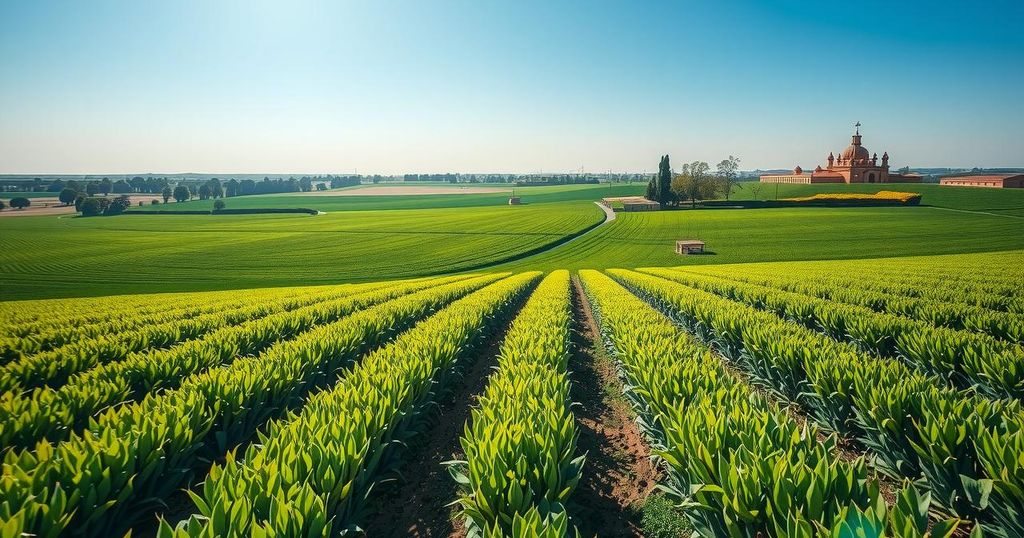Adaptation Challenges for Farmers in Madagascar’s Vanilla Regions Amid Climate Change
Farmers in Madagascar’s vanilla-rich regions are struggling to adapt to climate changes that threaten their livelihoods. Despite recognizing the impact of shifting weather patterns, many continue to use outdated farming practices, primarily due to financial constraints. Innovative solutions are necessary to support these farmers in addressing the challenges posed by climate change and ensuring food security.
In Madagascar’s vanilla-producing regions, farmers are increasingly confronted with the adverse impacts of climate change, particularly shifts in temperature and rainfall patterns. A recent study reveals that while farmers are already struggling to sustain their families, many anticipate a worsening situation yet are hesitating to modify their agricultural practices.
The research, conducted through interviews in 2023 in the villages of Sarahandrano and Mandena, highlighted that most residents rely on a mix of crops alongside vanilla cultivation. Farmers often utilize traditional hand tools and local water sources to aid their agricultural endeavors, balancing market sales and family sustenance.
Charles Nunn, a senior co-author and professor at Duke University, noted that a significant number of farmers reported diminishing water resources and time available for farming due to extreme weather events. Additionally, there is a observed increase in pests and health issues related to climate changes.
Despite these emerging challenges, adaptation measures are being adopted by only one-fifth of the surveyed farmers, significantly lower than similar studies conducted elsewhere. Tyler Barrett, a Ph.D. student at Duke and the study’s lead author, remarked on the financial barriers that influence farmers’ decision-making processes regarding adaptation strategies.
Approximately 80% of Madagascar’s population lives below the poverty line, amplifying these barriers. Randall Kramer, another co-author, emphasized that adaptation practices frequently incur higher costs in terms of labor and materials. He suggested that policy reforms aimed at reducing these costs should prioritize farmers with limited resources.
Innovative farming techniques, such as integrating fruit trees into existing fields and aquaculture in rice paddies, were recommended by Voahangy Soarimalala. These strategies could enhance food security while simultaneously assisting with pest management.
Risks for farmers in Madagascar are compounded by frequent cyclones and tropical storms, often leading to severe crop damage. Weather data indicates a trend of increasing temperatures and reduced rainfall over the past several decades, further hampering agricultural productivity.
Kramer expressed concern regarding the global implications of climate change on small-scale farmers, who are vital to global food systems. To address the situation comprehensively, researchers are expanding their studies to encompass more villages in the region, hoping to validate their findings on adaptive practices.
The dialogue surrounding climate change underscores the necessity for flexibility and innovation among farmers. Addressing immediate agricultural challenges remains critical, as the livelihoods of families are closely tied to the success of their crops.
The findings highlight the significant challenges faced by farmers in Madagascar due to climate change, including dwindling water resources and increased pest prevalence. Despite recognizing these challenges, many farmers remain reluctant to adapt their practices due to financial constraints. It is essential for policymakers to implement supportive programs to encourage adaptation among small-scale farmers who play a critical role in global food security. Continued research and broader surveys will be vital to understanding and supporting farmers in overcoming these environmental challenges.
Original Source: today.duke.edu




Post Comment